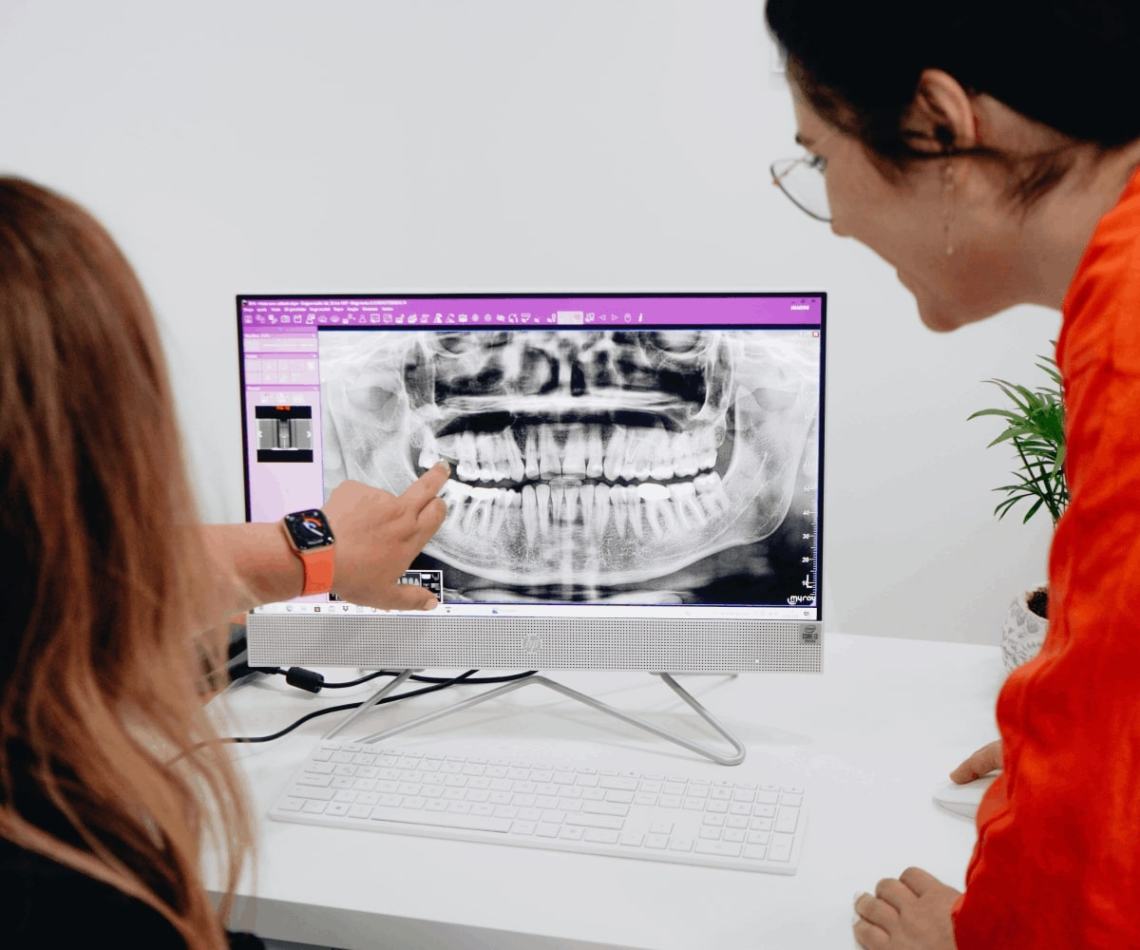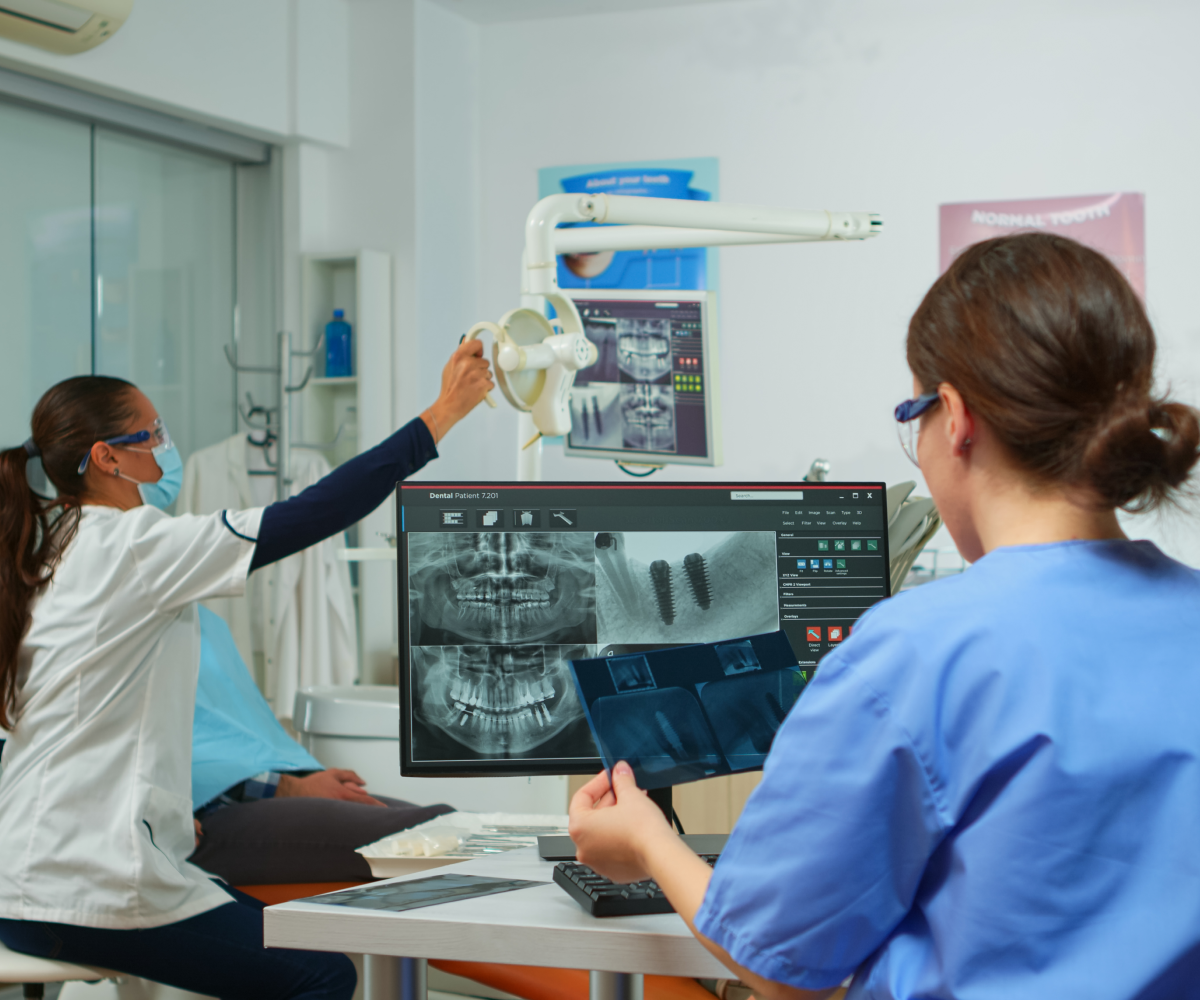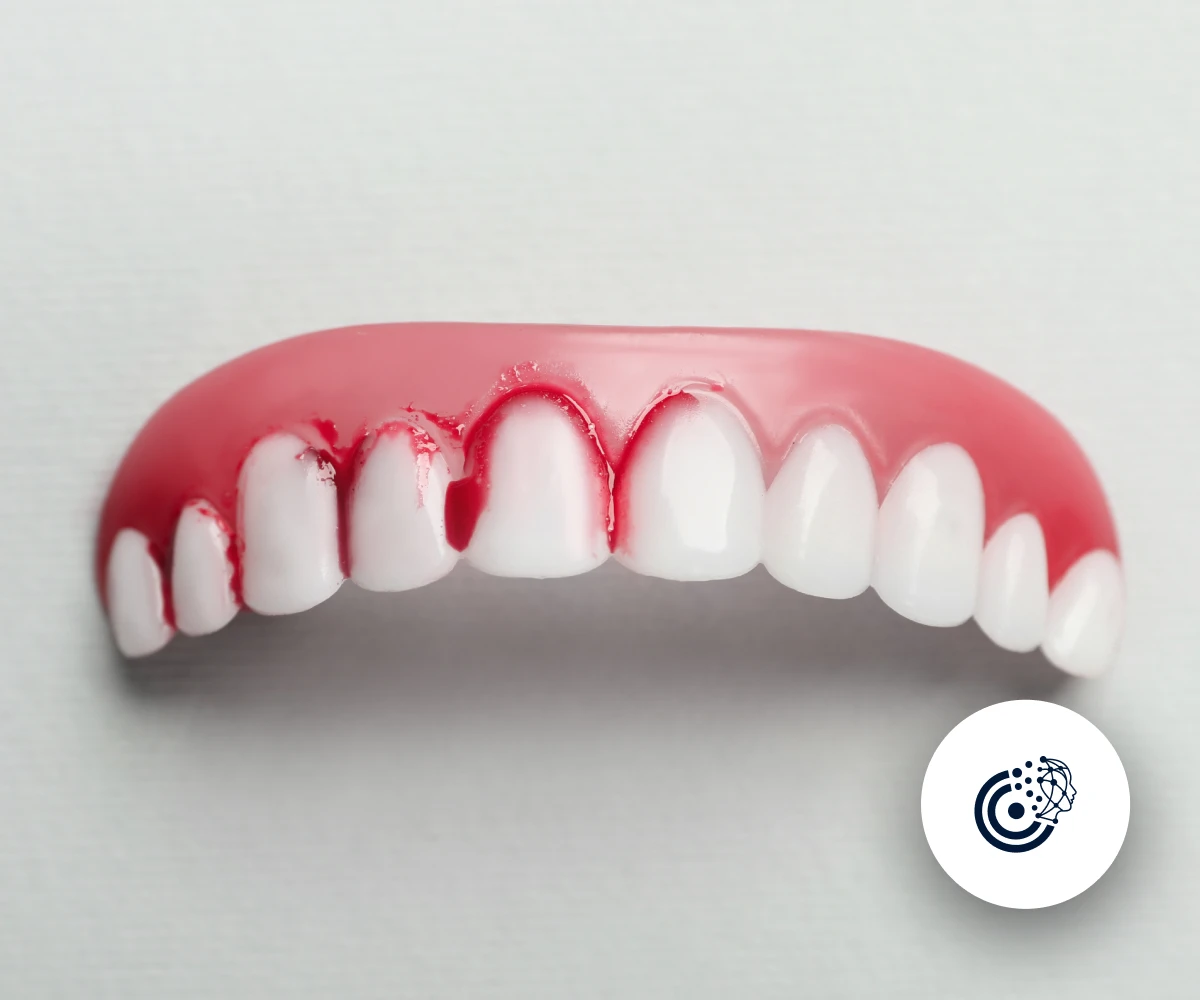Why Should You Prefer Dental AI in Medical Software Solutions
Using AI in dentistry can revolutionize today’s dental practices by improving efficiency and accuracy in tasks in dental. The American Dental Association recognizes the potential of artificial intelligence applications in the dental industry. AI may also help with dental practice management and improving patient care. Integration of AI in dental education can enhance learning outcomes and advance digital dentistry. AI in dental can assist in diagnosing dental caries using deep learning intelligence algorithms.
What is the Role of Artificial Intelligence in Dentistry?
Artificial intelligence (AI) is reshaping the dental industry with its application in dentistry. AI techniques can be used in dentistry to analyze dental images, integrate ai into dental research, and even assist in creating dental implants. AI software can help dentists in routine dental practice by using a deep learning-based convolutional network to analyse dental x-rays. AI has the potential to impact on dentistry greatly in the future.
Applications of Artificial Intelligence in Dental Practice
Artificial intelligence (AI) can be used in various dental applications to improve patient care and optimize practice workflows. AI provides dentists with tools for analyzing patient data, diagnosing conditions, and creating treatment plans. By leveraging AI technology, dentists can make more accurate and efficient decisions, leading to better outcomes for their patients. Furthermore, AI isn't limited to just diagnosing and treatment planning; it can also assist in patient communication, scheduling, and record-keeping, streamlining the entire dental practice process.
Advantages of AI in Dentistry
Artificial intelligence (AI) has revolutionized the field of dentistry by offering advanced technologies and tools that enhance patient care and diagnosis. One major advantage of AI in dentistry is its ability to analyze large datasets quickly and accurately, leading to more precise treatment plans and improved patient outcomes. Additionally, AI-powered systems can assist dentists in detecting early signs of oral diseases, reducing the risk of serious complications. By incorporating AI into dental practices, dental professionals can work more efficiently and effectively, ultimately providing better quality care to their patients.
How is AI Used in Diagnosis of Dental Caries?
AI plays a crucial role in the early diagnosis of dental caries. Through the use of artificial neural networks and advanced imaging technology, AI algorithms can analyze dental radiographs to detect and diagnose cavities with high precision. This not only aids in timely treatment but also contributes to preventive dental care.
How Does AI Enhance Patient Care in Dentistry?
Use of AI in dentistry has the potential to enhance patient care in numerous ways. Artificial intelligence algorithms can be used to analyze dental data and detect dental decay with high accuracy. AI in the dental field isn't just about diagnosing problems; it also helps streamline administrative tasks in dental practices. The importance of artificial intelligence in dental informatics cannot be understated, as it has the potential to make dental treatment more efficient and effective in the future dental landscape.
Although AI in dentistry is still in its early stages, there are already examples of AI being used to provide personalized treatment plans for patients. With the use of AI, dentists can optimize treatment processes and improve patient outcomes. AI also has the potential to revolutionize the way dental professionals work by streamlining administrative tasks and allowing them to focus more on patient care. The use of AI in dentistry is a promising development that could greatly benefit both patients and practitioners in the future.
Using AI for Treatment Planning in Dental Care
Artificial intelligence is revolutionizing the way treatment planning is done in dental care. By using advanced algorithms and machine learning, AI can analyze patient data, dental images, and treatment histories to generate personalized treatment plans. This technology can help dentists make more informed decisions based on the individual needs and characteristics of each patient. Additionally, AI can assist in predicting potential outcomes of different treatment options, improving the overall quality of care provided to patients. As a result, using artificial intelligence in treatment planning is leading to more precise and effective dental treatments.
AI Applications in Detection and Diagnosis of Dental Diseases
Artificial intelligence is revolutionizing the field of dentistry by enhancing the detection and diagnosis of dental diseases. One key application of AI in this field is the analysis of dental images to identify abnormalities or potential diseases. By utilizing algorithms and machine learning, AI can efficiently detect early signs of cavities, gum disease, or oral cancer that may be missed by human practitioners. Additionally, AI can aid in treatment planning by providing personalized recommendations based on the individual's oral health history and characteristics. Overall, the integration of artificial intelligence in dental care is improving accuracy, efficiency, and patient outcomes.
Benefits of AI in Managing Dental Decay and Periodontal Disease
Artificial intelligence (AI) models have revolutionized the way dental decay and periodontal disease are managed. With the use of AI solutions, dentists can now accurately predict and diagnose these oral health conditions at an early stage. By analyzing large amounts of data, AI can identify patterns and trends that may be missed by human dentists. This allows for personalized treatment plans and better outcomes for patients. Additionally, AI can help streamline administrative tasks and improve efficiency in dental practices, ultimately leading to a more effective and patient-focused approach to oral health care.

What Are the Various Applications of AI in Dentistry?
Artificial intelligence (AI) integration in dentistry needs to be explored further to realize the full potential of AI. AI can help in the analysis of dental conditions and classification of oral lesions using deep learning. The various applications of AI in dentistry are vast - from providing accurate diagnosis to predicting treatment outcomes. By using artificial intelligence, dental professionals can make more informed decisions and provide better care to their patients.
AI Systems for Improving Dental Professionals' Efficiency
Artificial intelligence systems are revolutionizing the way dental practitioners work by improving their efficiency and accuracy. These AI systems can analyze patient data, predict potential issues, and even assist in treatment planning. By streamlining administrative tasks and offering real-time feedback, AI technology allows dental professionals to focus more on patient care. With the help of AI, dentists can make quicker and more informed decisions, leading to better outcomes for their patients. Overall, the integration of AI in dentistry is enhancing the quality of care and increasing productivity in dental practices.
Types of AI Algorithms Used in Dental Care
Artificial intelligence has revolutionized the field of dental care, with various algorithms being used to improve patient outcomes. One common type of algorithm is the machine learning algorithm, which can analyze large datasets to identify patterns and make predictions about a patient's oral health. Another type of algorithm is the image recognition algorithm, which can analyze dental x-rays and images to detect potential issues. Additionally, natural language processing algorithms are being used to analyze patient records and extract relevant information for better treatment planning.
The Intersection of AI in Medicine and Dentistry
Artificial intelligence (AI) has been transforming the healthcare industry, including both medical and dental fields. In dentistry, AI-powered technology has the potential to revolutionize diagnosis and treatment planning, leading to more accurate and efficient care for patients. By analyzing vast amounts of data and patterns, AI can help dentists make more informed decisions and provide personalized treatment options. From robotic surgeries to virtual consultations, the integration of technology in dentistry is changing the way oral health is managed and improving outcomes for patients.





 Contact Us
Contact Us

